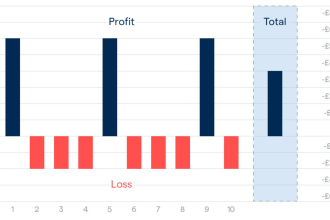The National Center for Health Statistics estimates that the life expectancy rate for seniors in the US is 78 years old. The good news behind this estimate is that most Americans are fortunate enough to have the time they need to create a comprehensive estate plan.
Two common estate planning tools used today are wills and trusts. You may think a will and a trust are the same thing. The truth is, however, that both tools serve a completely different purpose.
Check out this detailed guide to learn more about the difference between a will and a trust. With this information in hand, you’ll be sure that your assets are distributed consistently with your final wishes.
Will vs Trust: What Are They?
A will and a trust are two distinct estate planning tools that can help make sure that your assets are protected and passed along to your identified heirs, besides your spouse, which is generally not an issue.
What Is a Will?
A will is a written document that describes how you would like to disperse your assets once you die. The US Estate and Gift Tax Law usually allows distributing assets to a surviving spouse without earning any estate or gift tax liability.
A detailed will and testament will also outline how and when you want assets dispersed to others such as your children or your own relatives (i.e., your parents, siblings, etc.).
Your will can also include specific instructions for other acts such as donating to a charity or taking care of your small children. A will can name the guardian you want to care of your minor children if you should pass away before they reach 18 years old.
A will covers those assets that are only in your name when you die. Wills won’t cover any of those assets that you hold in a joint tenancy agreement or in another trust.
A will can be amended or even revoked whenever you want while you’re alive and mentally able to do it. All versions of a will must be signed in the presence of two witnesses.
What Is a Trust?
Another estate planning tool is called a trust. Trusts are arrangements that allow third parties to manage a property on behalf of a beneficiary. This tool is sometimes called a “living” trust because it can provide asset management before someone dies.
Living trusts allow you to specify where you want your assets to go and the earliest your heirs can gain access to them. You can also use living trusts to manage your assets in the event you become disabled or injured. A successor trustee will manage your property for you in case you can no longer do it yourself.
It’s also important to know that a trust only covers those assets that you specifically transfer to that specific trust. In order for any property to be included in your trust, you must specifically name it as included in the trust.
A trust will help you manage your property both before and after your death. You can use a living trust to direct where your assets go and when your beneficiaries can expect to inherit them.
A living trust will also help you oversee your holdings in the event you become disabled or can’t manage them by yourself.
Revocable and Irrevocable Trusts
A living trust is classified as either a revocable or irrevocable trust. Revocable trusts can revise or cancel the trust’s instructions during any point in the grantor’s life.
Assets included in a revocable trust can include bank accounts, real estate, valued possessions, and other investments.
An irrevocable trust implies that you agree to forfeit your rights to change or withdraw the trust once it’s been established.
Only your beneficiaries can revise and approve any changes to the trust once it has been written. When you create an irrevocable trust, you transfer your ownership of the trust and you no longer have any control over the assets identified in the trust.
A revocable trust is a more common process than its irrevocable counterpart. A revocable trust allows you more control over your assets.
If you should experience a major life change, like selling residential property contained within your trust, you can make these updates yourself.
What Is the Difference Between a Will and a Trust?
Both wills and trusts can outline your wishes to distribute your assets after your death. Study these differences highlighted below so that you’ll know if one is a better option to take care of you and your family. Some of these differences include the following:
Public Access to an Estate’s Individual Information
Individual details spelled out within living trusts are confidential information. Only the beneficiaries or an estate administrator with access to the trust’s historic file can review its contents.
Wills filed with the local county records office can be viewed by the general public. The public can also conduct estate searches either by visiting the county records office in person or by mail.
Probate Court Proceedings
A will is subject to probate court review. Probate court is a division of the trial court system that safeguards a deceased person’s wishes to disperse their assets to the proper beneficiaries.
The probate court also ensures that the deceased’s debts are also all paid off. Other matters that might come before a probate judge include creditor disputes or verifying a will’s validity.
There are some states that offer litigants a legal procedure that’s called informal probate. An informal probate procedure speeds up the court process for those estates that are valued under certain dollar amounts.
If your estate is eligible for informal probate, or you live in one of those states where the probate process isn’t as burdensome or complex, then a will is appropriate for your situation. Trusts aren’t subject to these same court procedures.
Appointed Executors
A will requires an administrator called an executor. An executor is an adult assigned to verify that someone’s property is dispersed consistently with the directions left in their will.
An executor will also supervise paying off any outstanding bills or debt that are due to any creditors. An executor also can’t receive any earnings or profits from selling off the estate’s property.
Probate law doesn’t require executors to be financial experts or attorneys. They are required, however, to carry out their duties in an honest manner to the best of their abilities.
Probate law describes this responsibility as a “fiduciary duty.” Someone with a fiduciary duty must act impartially and in good faith when executing someone’s will.
A judge will appoint a supervisor or an executor who oversees the disbursement of the deceased’s property. The executor will manage this disbursement consistently with the will’s directives. An executor can do this without gaining the court’s approval.
Trust funds may have a supervisor to oversee the management of the assets. These trust administrators should also act in a fair and impartial manner.
However, these estate planning tools don’t require court-appointed authority to carry out their duties. Trustees can immediately manage the funds or assets in a trust and disperse them to beneficiaries after the grantor dies.
Will vs. Trust: Which One Is Best for Me?
Are you still deciding whether a trust or a will is the best option for you? If you are, here are some other current life situations that might dictate which option is best for you:
Your Current Health Status and Age
Living trusts aren’t required if you are middle-aged and enjoying positive good health. A living trust will serve you better if you know you have an impending medical condition that could eventually diminish your capabilities to manage your own assets.
If you know you have a looming illness that could rob you of these abilities, having a living trust in place could bring you some peace of mind.
Current Obligations or Other Restraints
Managing your own trust can place a significant demand on your schedule.
You will need to regularly identify any legal ownership changes for those assets that you include as a part of your trust. This includes buildings, vehicles, bank accounts, or any other company enterprise you have included in your trust.
Family Situation
As stated earlier, if you are married, your will conveys your assets to your spouse when you die. If you and your spouse both die prematurely, your will can identify a guardian to care for those young children you leave behind.
Types of Assets
If you own multiple companies or businesses, you won’t want to hamstring their operations while the probate courts settle your matters. That’s why you should carefully consider if including these enterprises within a trust is a better solution.
For example, if you own commercial or residential properties in more than one state, then you should create a Revocable Living Trust. This process will help you deed these out-of-state properties into your trust.
Otherwise, your family could be faced with two different sets of state laws governing these properties after you die.
They will have to abide by those laws in the state where you live, and those probate laws in the state where your real estate investment is located. This form of dual probate system is called “ancillary probate.”
Probate court matters could take months to finalize. This time period could last this long, even if there are no challenges to your estate. Operations would have to come to a stop while the legal process runs its course.
Benefits of Creating a Will
Preparing your last will and testament is an economical way to pass along your assets to your intended beneficiaries. Having your will in place can also enable an efficient probate process for your heirs.
No will in place could create more costs to your family in the long run. If you don’t have a will in place, you might unintentionally increase your family’s time spent in court proceedings.
No will in place might also lessen any inheritance that they could receive if they have to pay court fees to ask the court to settle your estate.
A will can also help you spell out important decisions down the road for you and your family. If you have small children, your will can identify their guardian and place them in their able care.
Drafting a will has a whole host of other interests you should consider when you’re putting your final requests in writing. Legal professionals, such as those at Freedom Law, can advise you on what you need to consider when you are preparing your will.
Benefits of Creating a Trust
Establishing a trust prohibits anyone from making changes to it after you’ve created it. Some trusts also allow you to lower the value of your assets when you transfer them to your beneficiaries.
This ability can help your heirs avoid paying estate taxes that can be costly.
Decreasing the value of the estate also helps grantors qualify for Medicare or other income-restricted programs in their later years.
Certain trusts that are properly managed can also protect your assets. This protection can help shield you from creditors or others who might want to sue you.
Establishing a trust also helps you avoid public scrutiny of your private affairs and additional court fees that you would incur through the probate court process.
What Are Your Next Steps?
Your first step should be to call an estate planning attorney who can help you understand the difference between a will and a trust.
These tools have their own unique characteristics to help you distribute your assets in a way that serves those you love the best. Let these legal professionals help you figure out which one serves your needs the best.
Don’t hesitate to check out our website for more helpful information on settling these end-of-life matters. We’re here to help you safeguard those assets you’ve spent a lifetime to build.














